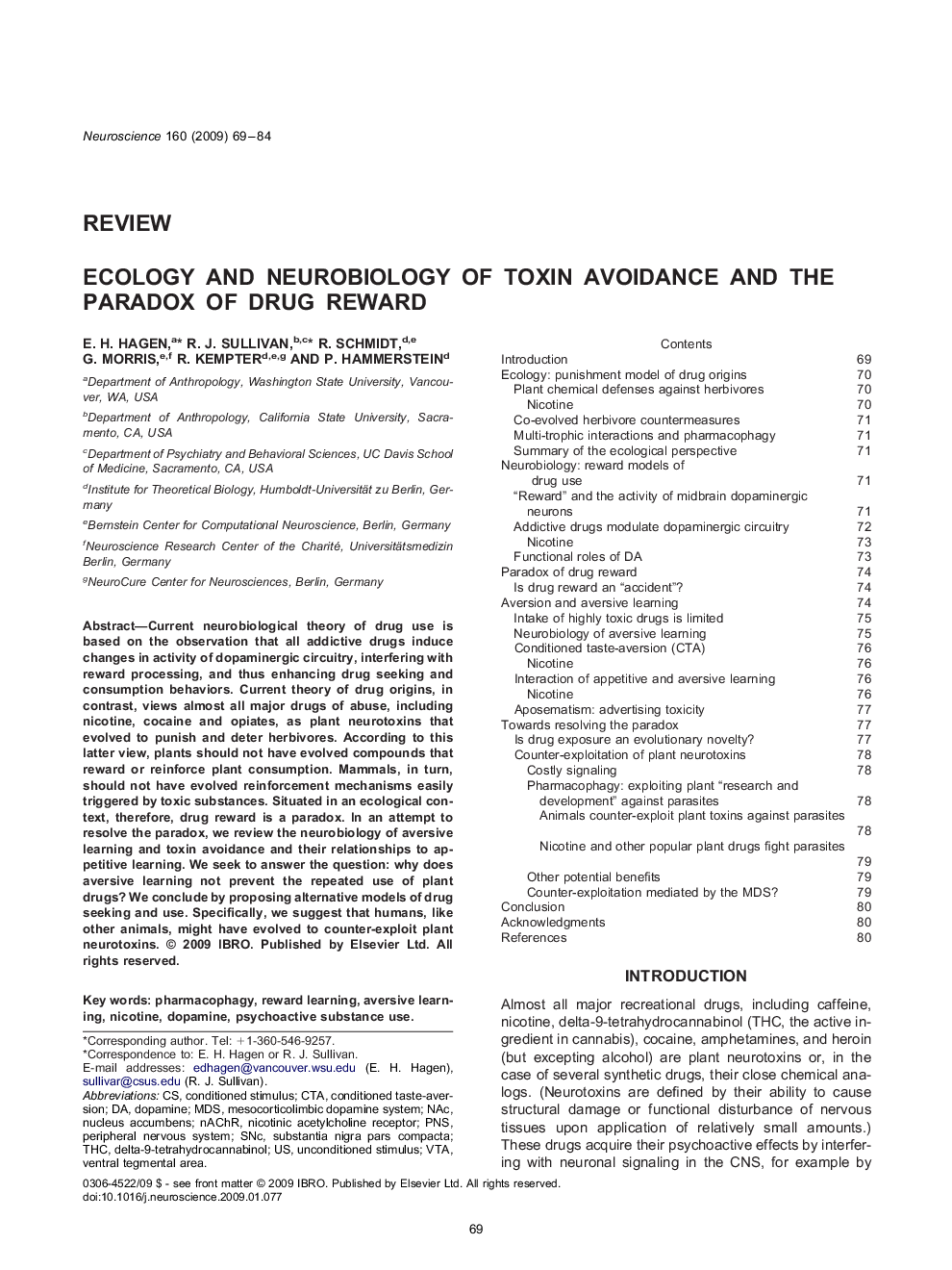| کد مقاله | کد نشریه | سال انتشار | مقاله انگلیسی | نسخه تمام متن |
|---|---|---|---|---|
| 4340080 | 1295782 | 2009 | 16 صفحه PDF | دانلود رایگان |

Current neurobiological theory of drug use is based on the observation that all addictive drugs induce changes in activity of dopaminergic circuitry, interfering with reward processing, and thus enhancing drug seeking and consumption behaviors. Current theory of drug origins, in contrast, views almost all major drugs of abuse, including nicotine, cocaine and opiates, as plant neurotoxins that evolved to punish and deter herbivores. According to this latter view, plants should not have evolved compounds that reward or reinforce plant consumption. Mammals, in turn, should not have evolved reinforcement mechanisms easily triggered by toxic substances. Situated in an ecological context, therefore, drug reward is a paradox. In an attempt to resolve the paradox, we review the neurobiology of aversive learning and toxin avoidance and their relationships to appetitive learning. We seek to answer the question: why does aversive learning not prevent the repeated use of plant drugs? We conclude by proposing alternative models of drug seeking and use. Specifically, we suggest that humans, like other animals, might have evolved to counter-exploit plant neurotoxins.
Journal: Neuroscience - Volume 160, Issue 1, 21 April 2009, Pages 69–84